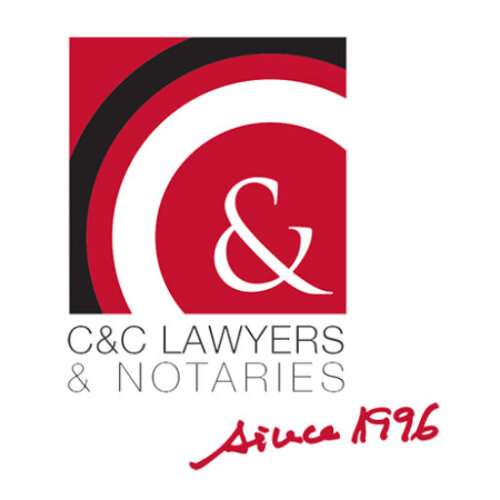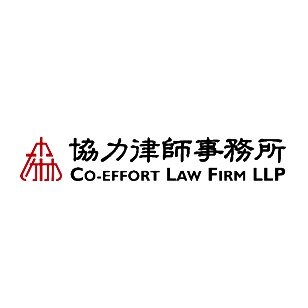Best Structured Finance Lawyers in Beijing
Share your needs with us, get contacted by law firms.
Free. Takes 2 min.
List of the best lawyers in Beijing, China
About Structured Finance Law in Beijing, China
Structured finance in Beijing, China refers to the complex legal and financial structuring of transactions that are designed to meet specific financing needs which cannot be solved with conventional financing solutions. These can include securitizations, asset-backed securities, collateralized loan obligations, derivatives, and project finance. Beijing, being China’s capital and a major financial hub, has developed a sophisticated legal framework and infrastructure to support these transactions. Chinese authorities, particularly the China Securities Regulatory Commission (CSRC) and the People’s Bank of China (PBOC), play a crucial role in regulating structured finance activities in Beijing.
Why You May Need a Lawyer
Engaging in structured finance transactions without specialized legal support can expose participants to major legal and financial risks. Common situations where individuals or organizations may require a lawyer’s assistance include:
- Structuring and negotiating asset-backed securities or other securitization deals
- Navigating regulatory compliance with Chinese financial authorities
- Drafting and reviewing complex contracts and deal documentation
- Advising on cross-border structured finance and capital market transactions
- Handling disputes or defaults relating to structured finance products
- Ensuring tax efficiency and compliance
- Guiding through financial reforms and evolving local regulations
Local Laws Overview
Structured finance in Beijing is governed by a combination of national and municipal laws, regulations, and guidelines. Key legal frameworks include the Securities Law of the People’s Republic of China, the Asset-Backed Securitization Guidelines, and other administrative measures issued by the CSRC and PBOC. Special aspects relevant to Beijing include:
- Stringent licensing and registration requirements for market participants
- Mandatory disclosure and reporting duties for issuers and arrangers
- Foreign exchange controls and specific rules for cross-border transactions
- Risk retention and credit enhancement rules to ensure financial stability
- Legal requirements for trustee and asset manager qualifications
- Anti-money laundering and anti-fraud regulations
Frequently Asked Questions
What is structured finance?
Structured finance is a financial technique that involves pooling financial assets and converting them into investment instruments like securities. It is commonly used to raise capital or spread risk in complex transactions.
Are there restrictions on foreign participation in structured finance in Beijing?
Foreign investors and institutions may participate in structured finance transactions subject to Chinese laws and regulatory approval. There are specific rules for foreign currency transactions, ownership limits, and additional regulatory filings.
Who regulates structured finance in Beijing?
The main regulators are the China Securities Regulatory Commission (CSRC), the People’s Bank of China (PBOC), the Beijing Financial Supervision Administration, and in some cases, the National Development and Reform Commission (NDRC).
What due diligence is required in a securitization deal?
Comprehensive due diligence is necessary, including legal reviews of underlying assets, verification of ownership, compliance with disclosure rules, and checks against fraud or default risks.
How are disputes in structured finance resolved?
Disputes can be resolved via negotiation, mediation, arbitration, or litigation in Chinese courts, depending on the terms of the contracts and the nature of the dispute.
Can local banks issue asset-backed securities in Beijing?
Yes, local banks and qualified financial institutions can issue asset-backed securities, subject to CSRC and PBOC regulations and approval.
What are the main risks in structured finance transactions?
Risks include credit risk, legal and regulatory risk, counterparty risk, market risk, and operational risk. Proper legal advice helps mitigate these risks.
Is tax planning important in structured finance in Beijing?
Yes, tax efficiency is crucial. Different structures may have varied tax implications. Legal professionals help ensure compliance with local tax laws and optimize transaction structures.
Do structured finance transactions need to be registered?
Most structured finance deals, especially public offerings, must be registered or filed with relevant regulators before issuance in Beijing to comply with disclosure and transparency requirements.
How can a lawyer help with cross-border transactions?
A lawyer can help navigate foreign investment restrictions, currency controls, cross-jurisdictional legal issues, and assist with contract negotiation and compliance in both Chinese and international legal contexts.
Additional Resources
Individuals seeking further information or assistance can contact or consult the following resources:
- China Securities Regulatory Commission (CSRC) - The main regulatory body for securities and structured finance
- People’s Bank of China (PBOC) - The central bank responsible for monetary policy and financial market regulation
- Beijing Financial Supervision Administration - The local financial regulatory body in Beijing
- China Banking and Insurance Regulatory Commission (CBIRC) - Regulates banking and insurance sector involvement in structured finance
- Local bar associations and law firms - For legal representation and consultation
Next Steps
If you need legal assistance in structured finance in Beijing, it is important to:
- Identify the nature of your transaction and potential legal challenges
- Gather relevant documents and transaction details
- Seek a qualified law firm or lawyer specializing in structured finance, preferably with local and international experience
- Arrange a consultation to discuss your needs and options
- Stay informed about regulatory updates and be proactive in addressing legal or compliance issues as they arise
Lawzana helps you find the best lawyers and law firms in Beijing through a curated and pre-screened list of qualified legal professionals. Our platform offers rankings and detailed profiles of attorneys and law firms, allowing you to compare based on practice areas, including Structured Finance, experience, and client feedback.
Each profile includes a description of the firm's areas of practice, client reviews, team members and partners, year of establishment, spoken languages, office locations, contact information, social media presence, and any published articles or resources. Most firms on our platform speak English and are experienced in both local and international legal matters.
Get a quote from top-rated law firms in Beijing, China — quickly, securely, and without unnecessary hassle.
Disclaimer:
The information provided on this page is for general informational purposes only and does not constitute legal advice. While we strive to ensure the accuracy and relevance of the content, legal information may change over time, and interpretations of the law can vary. You should always consult with a qualified legal professional for advice specific to your situation.
We disclaim all liability for actions taken or not taken based on the content of this page. If you believe any information is incorrect or outdated, please contact us, and we will review and update it where appropriate.

















